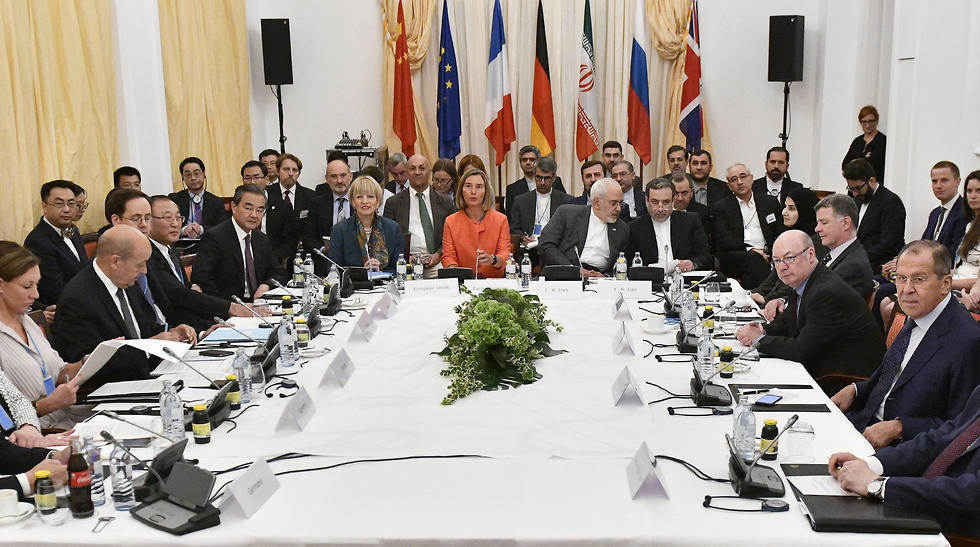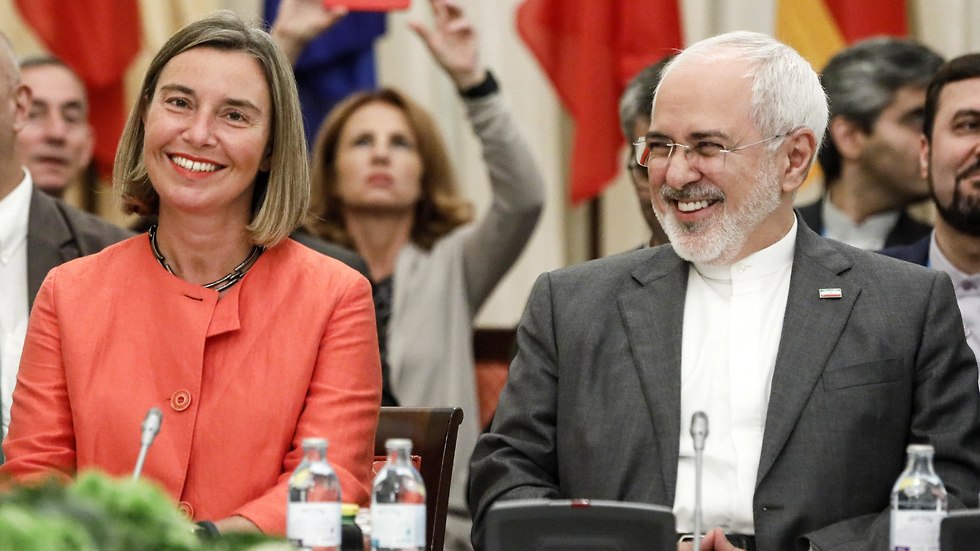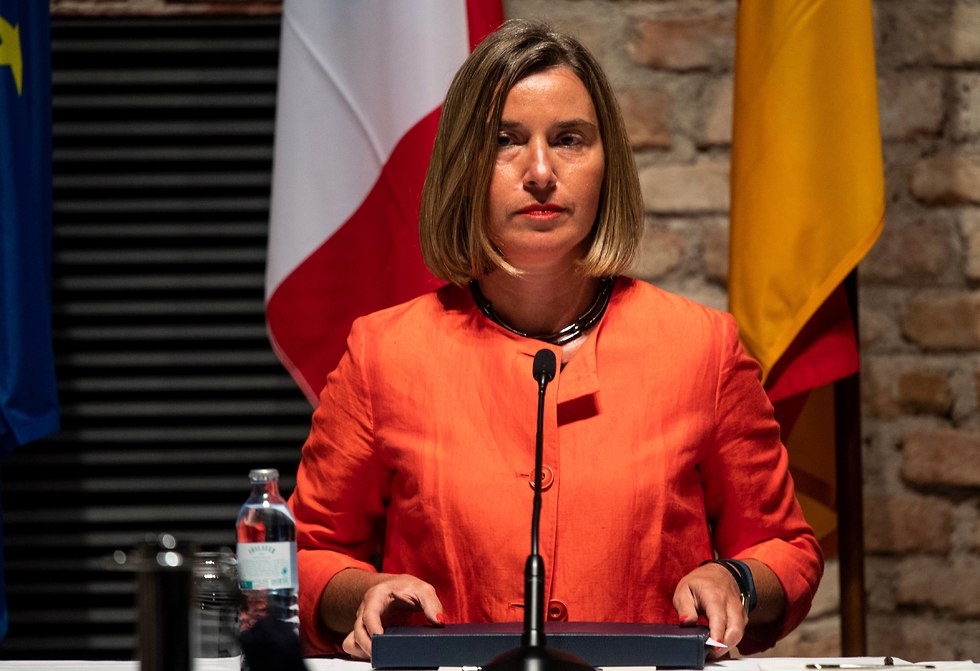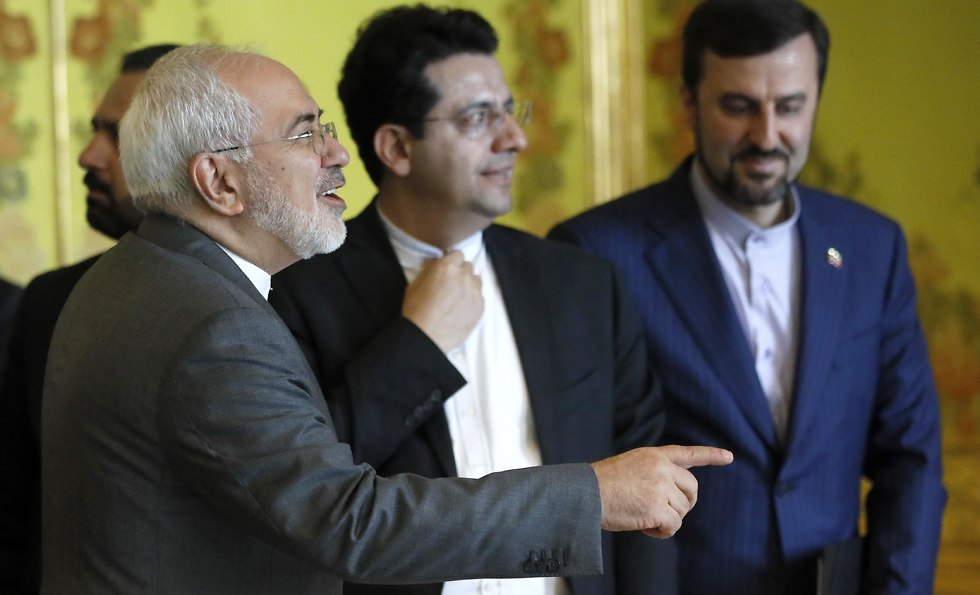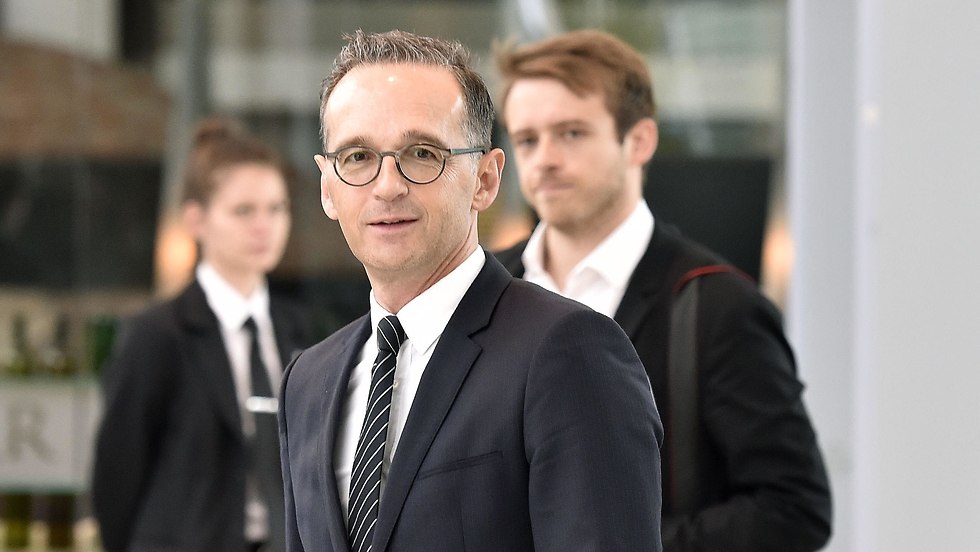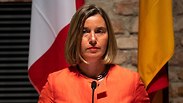
Zarif: Remaining partners in nuclear deal willing to resist US
EU foreign policy chief Mogherini says world powers, Iran agreed to meet again to advance common efforts, but announces no breakthrough; Iranian FM stresses 'commitments made today should be implemented before the August deadline.'
Iran's top diplomat on Friday praised the country's remaining partners in a landmark 2015 nuclear deal for their "will to resist" US pressure after Washington withdrew from the deal in May.
"What I noticed during this meeting is that all the members, even the three allies, have committed and have the political will to take action and resist the United States," Foreign Minister Mohammad Javad Zarif told a press conference, broadcast by Iran's Fars news agency, after talks in Vienna.
Three European nations along with Russia and China vowed at the meeting to keep the energy exporter plugged into the global economy despite the US withdrawal and threat of renewed sanctions, including on Iran's key crude oil exports.
The diplomats said they remained committed to the 2015 accord and to building up economic relations with Iran, including "the continuation of Iran's export of oil and gas" and other energy products.
However, they appeared to make no concrete breakthrough in the talks to provide Tehran with an economic package to compensate for US sanctions that begin taking effect in August.
Ministers from Britain, China, France, Germany and Russia met their Iranian counterpart in Vienna for the first time since US President Donald Trump left a nuclear accord in May, but diplomats had seen limited scope for salvaging it.
Trump pulled the United States out of the multinational deal under which sanctions on Iran were lifted in return for curbs on its nuclear program verified by the International Atomic Energy Agency (IAEA). Washington has since told countries they must stop buying the OPEC producer's oil from Nov. 4 or face financial consequences.
The foreign ministers agreed on an 11-point list of joint goals in the Austrian capital, where the accord was signed three years ago with the aim of reining in Iran's atomic program in return for sanctions relief that promised greater trade and investment.
"This is the first time they have shown this level of commitment, but we will have to see in the future what they really want to do and what they can do," Zarif said.
"If they continue to demonstrate the political will they showed today, they will get things done without any problem."
Speaking after three hours of talks, EU foreign policy chief Federica Mogherini, who chaired the talks, read a statement from the six delegations repeating previously-announced broad priorities ranging from guaranteeing Iranian oil revenue to shipping ties, banking and all other trade and investment co-operation.
"The participants recognized that, in return for the implementation by Iran of its nuclear-related commitments, the lifting of sanctions, including the economic dividends arising from it, constitutes an essential part of the JCPOA," Mogherini said.
She noted that companies pursuing business in Iran "have been acting in good faith based on the commitments contained in the JCPOA and endorsed at the highest level by the UN Security Council" and said the treaty states were committed to providing "clear and effective support for economic operators trading with Iran."
"Participants agreed to keep progress under close review and to reconvene the joint commission, including at ministerial level, as appropriate in order to advance common efforts," Mogherini continued, adding that all sides were determined to find and implement solutions.
Unlike at past meetings, Mogherini took no questions.
Iran: EU package must be put into practice by August
Iranian President Hassan Rouhani had previously called the latest package of incentives offered "disappointing," but Iranian Foreign Minister Javad Zarif said he would convey "deeper explanation" observed at the Vienna meeting to Tehran.
"We prefer to continue to stay in the nuclear deal," he told reporters. "But the final decision will be made in Tehran."
Still, he called the meeting "one step forward."
"The concerns, which we had last night and which were also expressed by President Rouhani, were addressed in the meeting and more details were disclosed, and they make us more optimistic than we were yesterday," he said.
"The EU package is a commitment, but we have to wait and see how it will be put into practice before the first sanction date" of August 6.
Speaking earlier in the day, France's foreign minister said that world powers would struggle to keep to that deadline.
"They (Iran) must stop threatening to break their commitments to the nuclear deal," Jean-Yves Le Drian said.
"We are trying to do it (economic package) before sanctions are imposed at the start of August and then the next set of sanctions in November. For August it seems a bit short, but we are trying to do it by November," he said.
World powers won't be able to compensate Iran
On arrival in Vienna, Germany's Foreign Minister Heiko Mass said he didn't expect a collapse of talks, but suggested more negotiations would be needed in the future. He stressed that world powers would struggle to compensate Tehran entirely for the loss of business from companies withdrawing.
But Maas said they would advise firms that want to continue investing and emphasize to Iran that leaving the deal "would have much greater disadvantages."
"We want to make it clear to Iran today that it still has economic benefits from this agreement," Maas told reporters. "Above all we will try to create the conditions for that."
Chinese Foreign Minister Wang Yi, meanwhile, said preserving the deal was critical, and that the treaty states would send a "united, determined and strong signal" that they were committed to it despite Trump's decision.
"If this treaty can't be upheld then this doesn't just hurt the interests of Iran, it also damages the peace in the Middle East and the credibility of the international world order," Wang said.
The pillars of the European Union's strategy are: European Investment Bank lending, a special measure to shield EU companies from US secondary sanctions, and a Commission proposal that EU governments make direct money transfers to Iran's central bank to avoid US penalties.
Bank payments
"We've made some progress, including on safeguarding some crude (oil) sales, but it's unlikely to meet Iranian expectations. It's also not just about what the Europeans can do, but also how the Chinese, Russians, Indians, others can contribute," said a senior European diplomat.Iranian officials have said that key for them is to ensure measures that guarantee oil exports do not halt, and that Tehran still has access to the SWIFT international bank payments messaging system or an alternative.
"We are ready for all possible scenarios ... the collapse of the deal will increase the tension in the region. To save the deal, other signatories should compensate for US sanctions," a senior Iranian official told Reuters on Friday.
During a visit to Europe this week President Hassan Rouhani warned that Iran could reduce its co-operation with the UN nuclear watchdog, having already threatened Trump of the "consequences" of fresh sanctions against Iranian oil sales.
Iran's Revolutionary Guards have also warned that they may block oil shipments through the Strait of Hormuz in response to US calls to ban all Iranian oil exports.
On the nuclear side of the agreement the parties did agree to replace the United States in a working group to redesign the Arak reactor with China.
The deal specifies that the new design will aim to minimise the production of plutonium and to prevent the production of weapon-grade plutonium in normal operation. It also specifies the fuel Arak must use and says its spent fuel for the reactor's lifetime must be shipped out of Iran.
The Associated Press and AFP contributed to this story.










